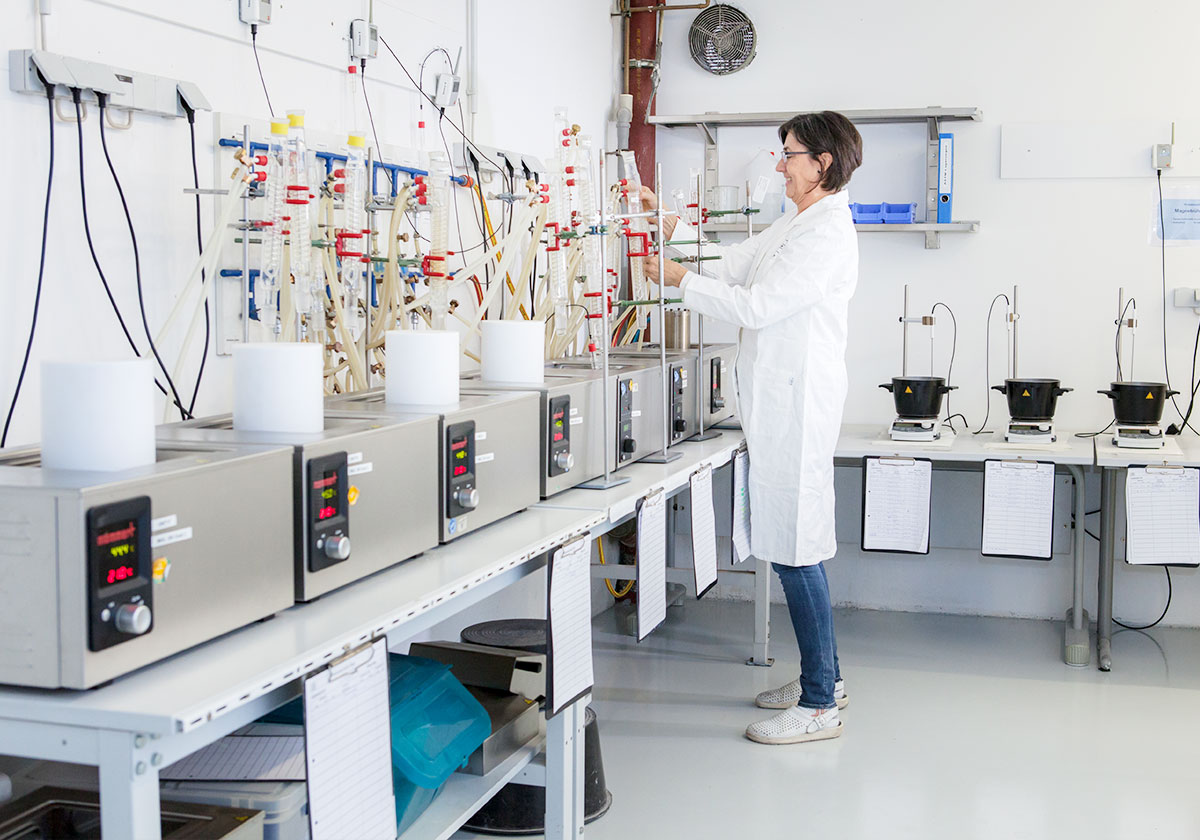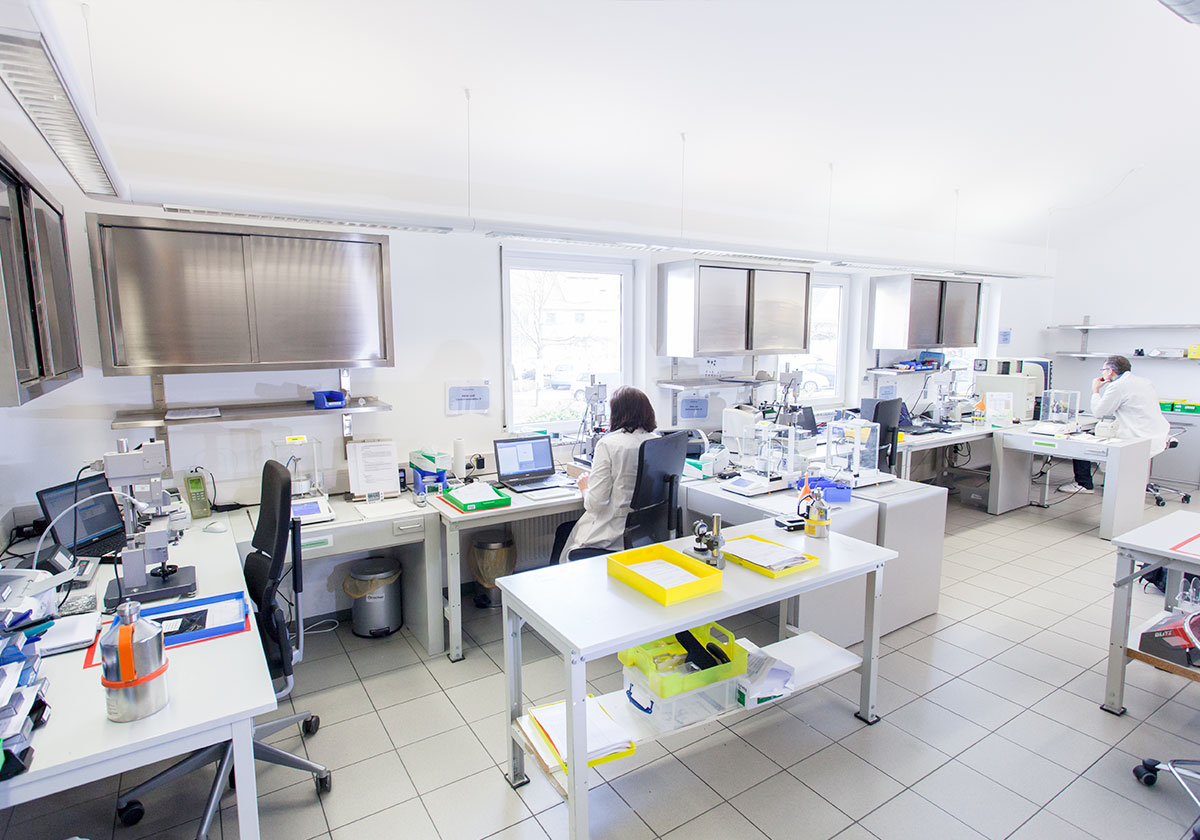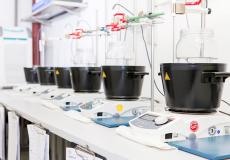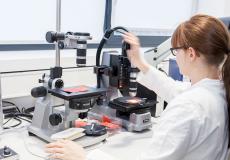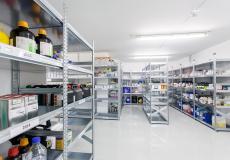The Importance of Elastomer Testing
“Every beginning is difficult” says the known proverb. This is also true about the use of elastomers in novel applications. Nevertheless, because of our long experience in the testing technology and in the practical use of elastomers, we can help you with mastering these difficulties. Of course, we can also support you in your daily questions and problems with rubber, since this fascinating material is dishing up again and again new puzzles. It is in the formation phase where it is important to know in detail the material that is being used. For that, the material testing has developed in the last decades to an indispensable tool. Existing testing methods are being constantly improved and some of the new highly diagnostic have been added over the last years.
Fields of Application
From Automotive Industry to Chemical Industry
We conduct a majority of our material tests for the automotive industry but we have customers from all industries such as heating and sanitary engineering, hydraulic and pneumatic industries, power plant and nuclear technology or chemical and process engineering.
For customers from the automotive supply industry we test elastomer materials and seals according to specific in-house standards of the respective final customer (e.g. VW, Daimler, or BMW) but we also test in accordance with standards that are independent from companies (e.g. ISO/DIS 3601 part 5, ECE R110 respectively ECE R67, DIN EN 549, DIN EN 681 and 682). As we are an accredited test laboratory our test results are accepted by most companies, in some cases we are even recommended or made compulsory to their suppliers. Then the material release by the final customer takes place based on our test results. We are able to help our customers cross-sectorally through appropriate qualification tests that their elastomer parts are qualified in accordance with the current status of technology and application.
Qualifications
Proven Professionalism
Since 2009 the O-Ring-Test-Laboratory Richter has an accreditation as test-centre for the German Technical and Scientific Association for Gas and Water (DVGW). It covers tests in the field of gas (DIN EN 549, DIN EN 682, Technical Rule VP 406) and in the field of water (DIN EN 681 respectively Technical Rule W 534-10.3-Elastomers).
Another field deals with incoming goods inspection and testing. More and more companies rely on our professional competence and our expertise in test engineering to conduct reliable and significant tests with credible results on supplied elastomer components.
Gaps in the incoming goods inspection and testing of elastomer seals and components pose major risks to warranty and product liability. Especially with components in demanding innovative applications it is recommended to rely on our experience. We develop test plans in cooperation with you which are tailored to your specific needs. In this way you are able to prevent defects early within a manageable and predictable budget and from the beginning you can ensure a high level of quality in your production.
Our Testing Methods
Overall we offer a wide range of testing services for users, manufactures and technological trading.
- Incoming goods inspection and testing (hardness, density, dimensional checks, form and surface inspections, compression set, screening inspection)
- Physical material tests (hardness, tensile tests, tear strength, rebound resilience, measurement of friction force)
- Ageing tests (storage tests in glass, artificial ageing, ozone tests, compression set, tension set, compressive stress relaxation)
- Low temperature tests (compression set at low temperatures, TR10-tests, DSC-cold temperature standard)
- Analytical material testing (Thermogravimetry, Differential Scanning Calorimetry, FTIR-analysis)
- Electrical properties (volume and surface resistivity)
More Information about the Testing Methods
You can find further information about each testing method under the respective section. (English versions of these explanations are being prepared gradually.) We are looking forward to receiving your enquiry so that we are able to prepare an adequate offer.
Click here to contact us concerning elastomer tests.
Advantages of O-Rings
O-rings, applied properly, offer many benefits. The most important of them are the high degree of density with relatively small deformation forces, requirement of little space in the construction, easy mounting and a low price. These benefits have led to an increasing application of O-rings while at the same time production sites of O-rings as mass-produced goods have been translocated abroad for financial reasons.
Downloads
Our company flyer
Show PDF / download
